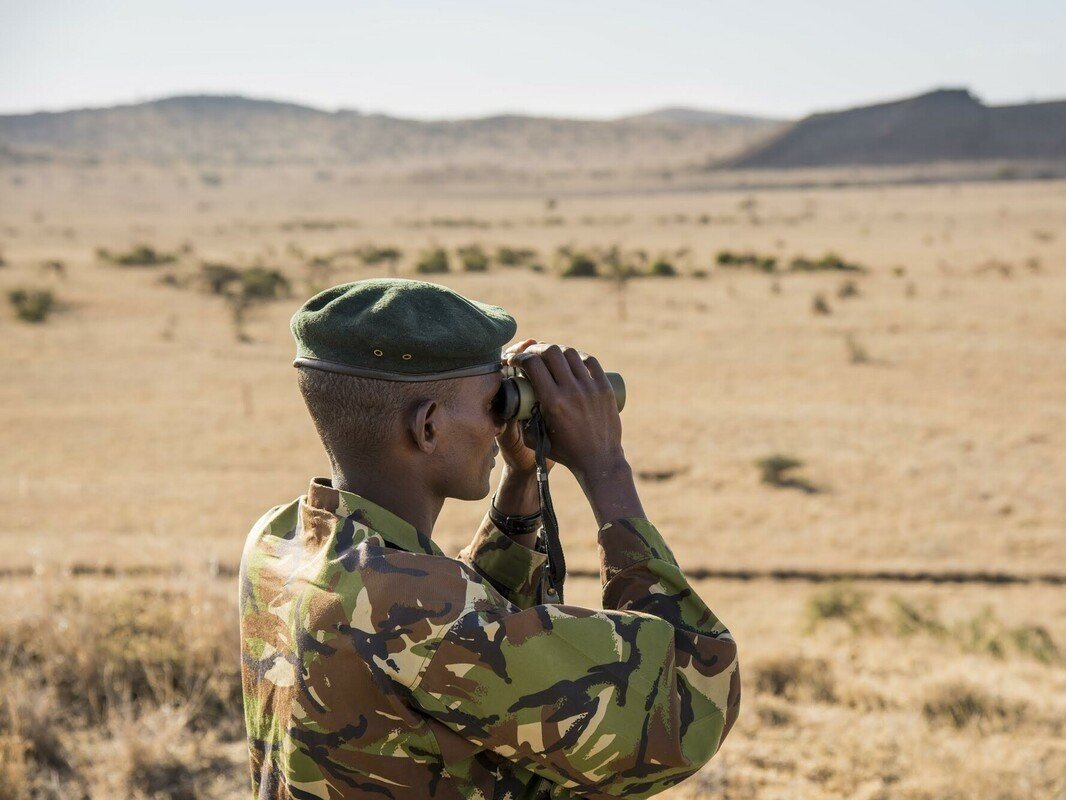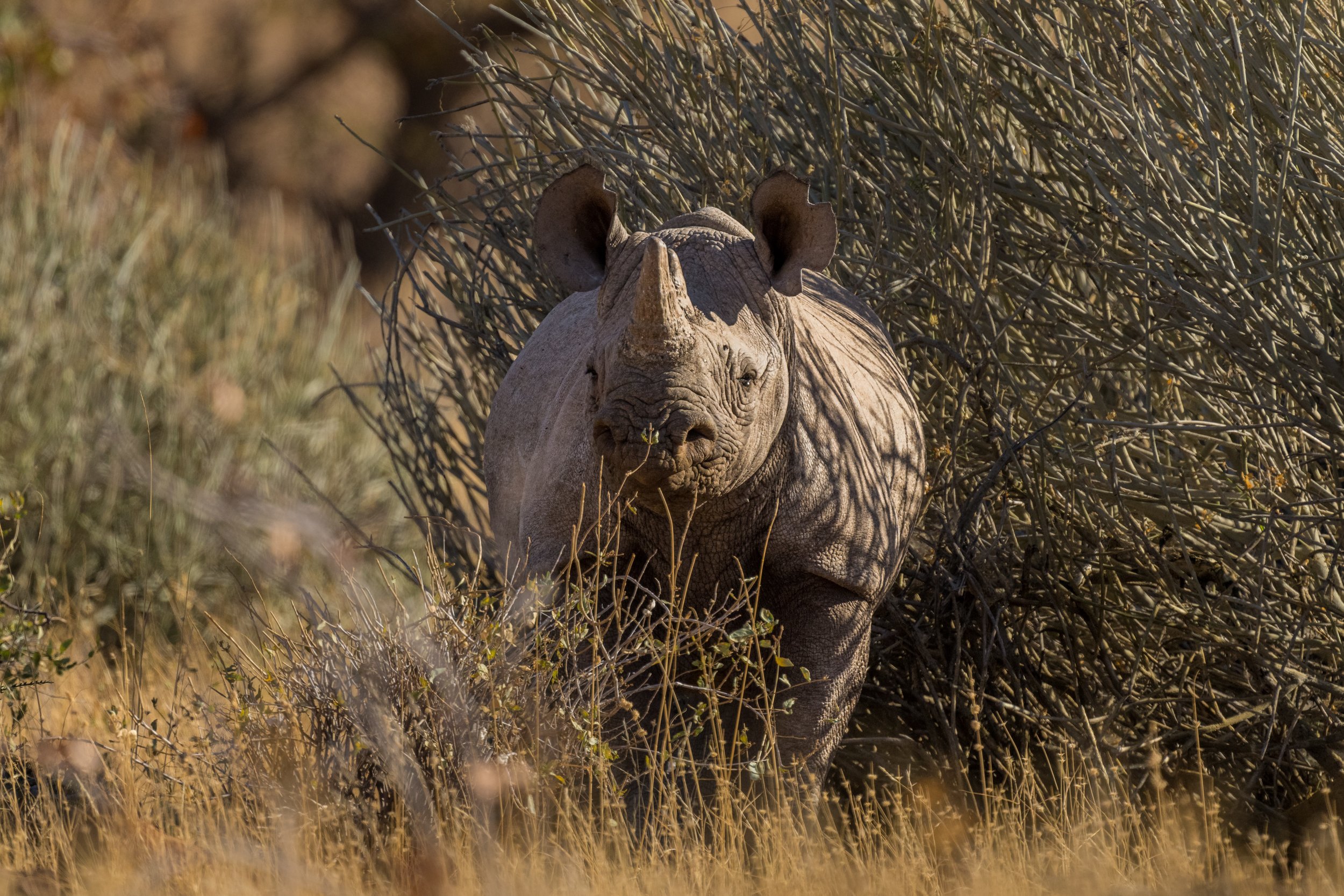Thyme’s Partnership with Tusk
Words by: Charlie Mayhew OBE, Founder and CEO of Tusk
Tusk has enjoyed a special relationship with Thyme ever since its opening. From the moment I set foot within the grounds of this amazing place and had the pleasure of meeting its founder, Caryn Hibbert, it was clear that Africa held a special place in her heart and she is rightly proud of the conservation work Thyme is undertaking particularly with the birdlife that flourishes within the meadows and surrounding countryside. Indeed, Caryn has always enjoyed pointing out that there is a fine thread that links the hotel with Africa as the migratory birds such as whitethroat, chiff chaff, grasshopper and willow warblers make their hazardous migration every spring to spend their summer at Thyme.
For more than 30 years, Tusk has carefully nurtured and supported a growing conservation movement across the African continent. Raising over £120m since its formation in 1990, I am proud that the charity’s investments in conservation and community-led programmes now afford protection for over 50 million hectares of Africa’s grasslands, wetlands and forests.
Protecting the natural world has never been more critical. Africa accounts for 25% of all global biodiversity. It is also the last stronghold of our planet’s awe-inspiring mega fauna, such as elephant, rhino, lion and gorillas. We know that protecting biodiversity in all it’s guises and keeping functioning eco-systems intact is crucial in our attempt to mitigate the effects of climate change. And we now also know that these mega fauna play a vital role in this process by ensuring nature is kept in balance thereby maximising the earth’s ability to sequester carbon.
However, it is no surprise that the greatest threat to the natural world continues to come from mankind. Our increasing human footprint, the resulting conflict with wildlife, our impact on climate, the illegal wildlife trade and our ability to destroy so much of the environment is truly alarming. In less than 50 years we have lost 60% of the planet’s mammals, birds, fish and reptiles, whilst the human population has tripled.
Tusk’s vision is simple – a future in which people and wildlife can both thrive across Africa. We believe in the inherent value of wildlife and know that sustainable conservation requires local solutions, expertise and engagement. Through our partners on the ground, we use conservation as a powerful tool to create jobs, support education and improve livelihoods. Indeed, our projects currently benefit over 10 million people across 23 countries and our environmental education programme, known as PACE, is reaching 600,000 students across 34 countries.
When local communities and stakeholders see economic benefits to co-existing with wildlife and that their actions are connected to a global environmental movement, conservation can and does succeed.
Our funding is applied through four parallel funds: our longstanding Tusk Fund, which invests in the high impact work of our core portfolio of partners; the Ranger Fund, which supports the employment, training and welfare of rangers across Africa; the Tusk Awards, which - with the support of our Royal Patron, The Prince of Wales - recognise the work of some remarkable ‘unsung’ conservationists; and lastly our new Collaboration Fund, which aims to act as a catalyst for joint ventures and innovative solutions. This unique blend of support is further enhanced with our biennial conservation symposium and thought leadership work.
Through our portfolio model, we select project partners that best align with our own conservation priorities and fulfil specific criteria including impact, leadership, innovation and scalability. A couple of examples are outlined below.
For decades poaching and the illegal wildlife trade has dominated the conservation headlines, but whilst this remains a concern, the biggest threat today comes from the ongoing loss of natural habitats and conflict between people and wildlife. To help mitigate this growing issue, there are a number of ingenious methods being deployed, such as bee-hive fences or chilli hedges to help ward off elephants from raiding crops - elephants don’t like either bees or chilli!
Whereas, our partner, CLAWS in Northern Botswana, have designed a novel approach to reducing human-lion conflict by using the latest technology. With funding from Tusk, they have developed software with a unique automated, adaptable alert system triggered when collared lions approach livestock areas and cross “geo-fences” - pre-programmed lines of co-ordinates that initiate alerts to farmers. They have over 100 participating farmers who receive messages via text or voicemail which provides both the name and distance of the specific lion. They can then take the necessary steps to protect their animals in predator-proof enclosures and the system has already successfully reduced lion conflict by 50%.
Conservation is not about quick fixes – it takes time, so we look to enter into long-term partnerships and we like to focus on funding locally-led organisations and particularly those that prioritise the needs and views of the local communities they support. The Northern Rangelands Trust (NRT) is one such ground-breaking and visionary approach to achieving wildlife conservation through the empowerment of local communities. Made up of 43 community conservancies in Kenya and Uganda, it protects a massive landscape of 63,000 sq km. The conservancies each operate teams of rangers to monitor and protect wildlife, including critically endangered species, like hirola antelope, black rhino and Tana River red colobus as well as elephant, Grevy’s zebra, lion and cheetah.
The organisation promotes valuable partnerships with the tourism sector, and runs a traditional craft business providing a vital income for over 1,200 local women. It also has a Peace Team that helps to resolve tensions between ethnic groups. As such it serves as a model for projects across the continent and I am particularly proud that Tusk was a founding investor when NRT was established in 2004 and we have continued to fund a range of initiatives to support its growth into what it is today.
Tusk’s portfolio of projects is extraordinarily rich and diverse – far too many to detail here, but they each provide real hope that it is possible to hold the line, engage communities in the value of their environment and protect some of the planet’s most precious biodiversity.
We thank Caryn Hibbert and the whole team at Thyme for the wonderful support they have given Tusk over the years and we very much look forward to the upcoming art exhibitions by Tusk Ambassador, Jemma Powell, and the Art For Charity Collective, both of which will be generously raising valuable funds for Tusk.










